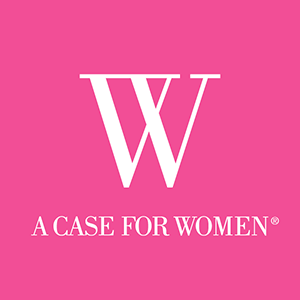We Don’t:
We do not assist with issues in:
- Family Law, such as custodial issues, divorce, or restraining orders
- Contractual Law, such as breaches of contract
- Landlord/Tenant Disputes
- Wills & Trusts
- Insurance Claims
We also do not provide emergency assistance. We encourage you to reach out to emergency services if you need immediate help or are in an actively unsafe situation. Your safety comes first. Once you are safe, we can revisit looking into your legal options.
We Do:
We’re looking at the powerful entities who may have been complicit or responsible for hurting you – such as a potentially negligent pharmaceutical company, financial institution, product manufacturer or even a company or a school that “looked the other way” when someone was wrongfully hurt or injured. Many of these powerful entities have a track record of endangering others, and as so often is the case, were it not for these entities deciding to look the other way, then the injuries and horrible outcomes could have been avoided altogether.
What this boils down to is: we focus on civil legal action (not criminal), and within that, we are looking for what is called a “viable defendant.” Scroll down below for more on viable defendants.
What the Law Firms We Work With Do and Don’t Do
They Don’t :
Take care of every legal issue in your life because you signed an agreement for one issue.
If we are able to connect you with a firm, signing the contingency agreement will mean securing representation to get started! From there, the firm will keep you updated on the progress of your potential case and let you know if at any time they find they are unable to proceed. But you should know that the scope of the firm’s work (or the extent of the area the firm is agreeing to look into and file a potential claim for) is for the specific issue outlined in your agreement.
It’s not like the stereotyped “lawyer on retainer” in a movie or TV show, one where, once they represent you, they give legal advice or assistance for everything you encounter and all of the issues you may want help with across the board.
They Do:
The firm is there to assist with and answer questions or concerns regarding the scope of your specific potential case. They are doing this important work on contingency. Meaning they are NOT paid upfront for the work, and they are NOT paid “on retainer, by the hour” whether they are successful for you or not. They are instead compensated if they reach a successful outcome for you. These firms are also often going up against huge defendants! “Goliath”-level defendants! Representing individual people against huge and powerful entities!
It goes without saying: You want your firm to focus on your specific case area and what they can do there for you; that is their job and their focus, and it’s a tough one as it is!
Now, More About That “Viable Defendant” Definition
A viable defendant is an entity that is suspected to be either at fault and liable for your injury or an entity that was aware of the harm you were incurring and was complicit in enacting and/or covering up that harm. A viable defendant is usually not one person or group of people, it is typically a company or other powerful organization. A viable defendant must also have financial assets – money that could be recovered in a settlement or in a successful verdict
Oftentimes when we are hurt, especially if it involves assault or abuse as opposed to a medical injury, we tend to think of the one person we know who inflicted the damage; the individual perpetrator. But what about the hospital, the hotel company, car service, school or religious organization that was aware of what was happening – that knew this was a repeat issue – and chose to do nothing? That is the work and the question we focus on, and that is what civil legal action and focusing on viable defendants is about.
(Note: There are exceptions where an individual person can also be a viable defendant, such as if the individual has large financial assets and power (and therefore has many people working for them, similar to an “entity” or “company” themselves). For example, in the case of Donald Trump, he was the sole viable defendant in the civil legal action brought by E. Jean Carroll. But this is unusual because most individuals do not have enormous assets.)
We believe that if someone was hurt by a powerful entity and decides to stand up and take legal action, there is hope of keeping others safe in the future.
The key questions to help identify a viable defendant are:
- Was there an injury of some sort? Injuries can be a traumatic event, a physical injury or diagnosed condition, or other harm or damages. These injuries almost always have a significant financial impact and/or impact to your health, requiring significant medical treatment.
- Was there a specific entity complicit or responsible for whatever (or whomever) caused an injury? Like a company that produced or manufactured a harmful product, or an institution that knowingly hired or retained a sexual predator.
- Does that entity have the financial assets to pay back those that they’ve hurt?
We hope this helps explain why our questions during our intake process are so specific. We may collect information you initially didn’t realize was important. In addition, we also may not need certain details that you thought you’d have to provide. Our questions are always centered around what we absolutely need to understand, nothing more and nothing less – that is why it’s so important to answer the specific questions we ask you.
Staying on track allows us to research your options!

